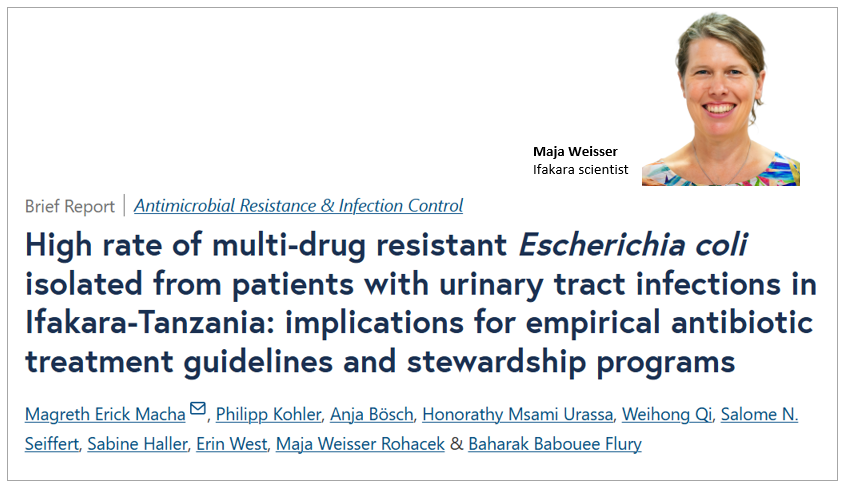
INFECTION CONTROL: High rates of antibiotic-resistant superbugs found in rural Tanzania

Two new studies, which Ifakara Health Institute is part of, have raised alarm over the growing presence of antibiotic-resistant “superbugs” among patients with urinary tract infections (UTIs) in rural Tanzania, warning of challenges in treating common infections and calling for stronger action against antimicrobial resistance (AMR).
The most recent study, published on Antimicrobial Resistance & Infection Control in May 2025, found that out of 1,000 patients at St. Francis Regional Referral Hospital in Ifakara, nearly one in four had a UTI, and the germs causing it were bacteria resistant to powerful antibiotics.
Similarly, in an earlier study by the same research team, published on Frontiers in Microbiology in January 2025, results show 71% of 326 UTI patients at the same hospital carry bacteria resistant to powerful antibiotics, complicating treatment in a region with limited healthcare resources.
Widespread resistance uncovered
The two studies paint a bigger picture of how drug-resistant bacteria are not just a hospital problem—they are in the community, in people, and may also be spreading through the environment or animals.
The scientists say these findings highlight the serious threat of AMR at the community level. They call for a “One Health” approach—recognizing the link between human health, animal health, and the environment—to better control the spread of resistant bacteria.
Ifakara drives local research
The Ifakara Health Institute, a leading Tanzanian research organization, played a role in the two studies to which Ifakara’s Dr. Maja Weisser Rohacek had contributed to.
International collaboration
Swiss institutions bolstered the research. Dr. Baharak Babouee Flury of the Medical Research Center and Division of Infectious Diseases at Kantonsspital St. Gallen led and University of Bern, supervised, and funded the study.
The Functional Genomics Center Zurich (University of Zürich/ETH Zürich), University Hospital Basel, Swiss Tropical and Public Health Institute, and Inselspital Bern University Hospital contributed expertise in genomics, infectious diseases, and global health, confirming the bacteria’s ability to share resistance genes.
Urgent call for action
The findings highlight the dire need for improved infection control in resource-limited settings. Overuse of antibiotics and poor sanitation fuel the spread of superbugs, threatening patients whose UTI resists treatment.
Maja and colleagues urge better hospital hygiene, stricter antibiotic policies, and investment in local labs to track resistance.
Global implications
These superbugs don’t stay in Tanzania, they could spread globally, making routine infections deadly. The study, led by Ifakara and its partners, underscores the urgent need for worldwide action to combat antibiotic resistance before it spirals further.
Read the Antimicrobial Resistance & Infection Control publication here.
Read the Frontiers in Microbiology publications here.
